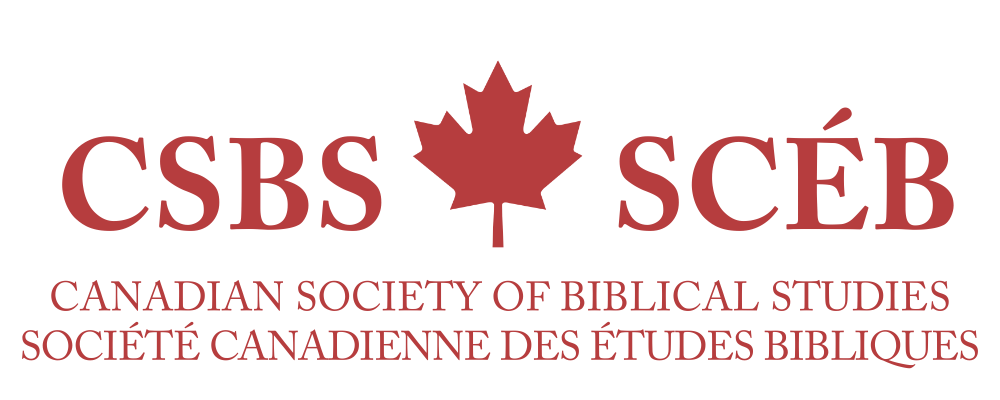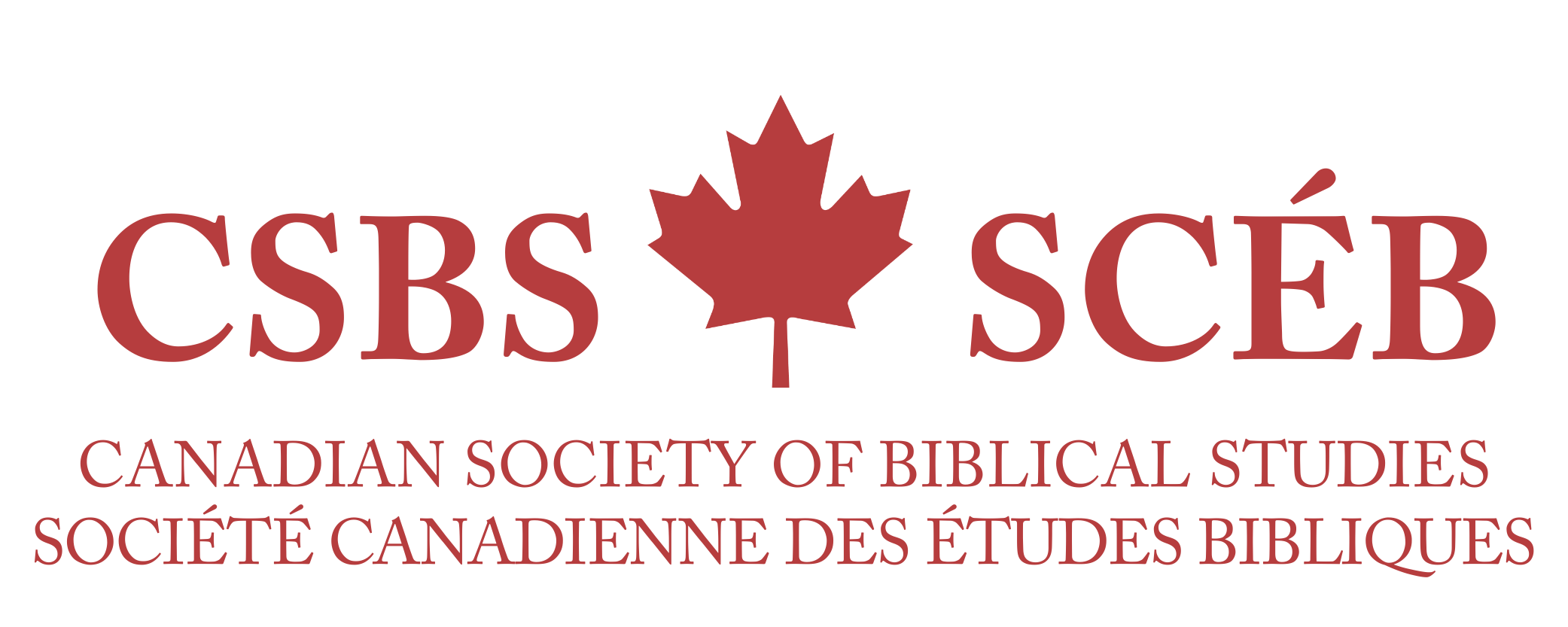Seminars and Sessions
Program Planning
The CSBS Program Coordinator develops the general program based on thematic or topical clusters of papers. General program sessions are organized by shared focus on biblical books, bodies of literature, time periods, language, or approach.
CSBS also welcomes members to organize sessions in a more coordinated manner in the form of either seminars or special sessions. These are distinguished mainly in terms of the degree of organization, commitment by participants, and period of time involved.
Organizers should consider a blend of established and emerging scholars as well as consider gender balance when planning. Qualified non-members may participate without having to pay for a CSBS membership, but Congress registration fees are required for all presenters.
When more seminars or sessions are proposed than can be accommodated in a given year, the Executive will prioritize those that enable broad member participation as well as have the greatest potential for scholarly impact.
Proposals and/or renewals are approved by the CSBS Executive at their Spring meeting. Proposals renewals must be submitted to the Programme Coordinator no later than April 30. See descriptions below for proposal requirements.
Seminars
A seminar consists of papers on a specific topic discussed over the course of one or more mornings or afternoons at a series of Annual Meetings. The emphasis is on discussion rather than reading papers. To that end, papers are distributed in advance and summarized at the Annual Meeting. The CSBS supports up to two seminars per year. This is in addition to any seminars jointly sponsored by our religious studies sister societies. Seminars have a 3-year mandate (renewable).
Written proposals and/or renewals must have well-defined goals, including a clear focus and explicit publication plans, and demonstrate the commitment of at least ten CSBS members to ongoing participation. If approved, new and/or renewed seminars will begin at the Annual Meeting the year following approval.
Special Sessions
Special sessions focuses on a specific topic over the course of a morning or afternoon. With the approval of the Executive, an individual member may solicit papers directly from other members and then select and organize the sequence of papers. Proposals may be for one to three years. Special sessions may circulate papers in advance or have publication plans, but these are not requirements as for seminars.
Members interested in organizing a special session should contact the Programme Coordinator to determine fit within the schedule of the year(s) in which the session will run. Formal proposals or renewals must be made in writing and include the names of confirmed participants and preliminary titles of papers. Upon approval, the session organizer is responsible for soliciting papers, organizing their sequence, and submitting final titles and abstracts to the Programme Coordinator. The Executive reserves the right to limit the number of special sessions in any given year.
Special Seminar: Emotion and Affect in Mediterranean Antiquity
What changes when we account for affect and emotion in the writing of history and the reading of ancient literature? What social and cultural phenomena are shaped and thrown into new configurations by that unpredictable constant: feeling? A number of recent studies have established affect and/or emotion as a crucial and rich concept for the study of ancient literature and social worlds. The aim of this seminar is to extend and deepen this work in a three-year conversation among interested members of the CSBS.
CFP
Each year will include a panel of pre-circulated papers on the topics described below as well as an open session on any aspect of the affect and emotion in antiquity. The purpose of the seminar throughout the three years includes plans for an edited volume of essays in the areas defined here.
2022 – Putting the “Theory” in Affect
Sessions this year will focus on theory – whether critical affect theory (Massumi, Deleuze, Ahmed, Berlant, Sedgwick), evolutionary theory (e.g. Panskeep, de Waal), or some other explicit explanatory approach. Each paper will discuss how the approach might assist identifying change, consolidation, or interruption of social or personal dynamics through feeling; papers might also try to capture one dimension of how theorizing affect has itself changed over the last 10-15 years, especially with regard to the study of ancient literature and social phenomena, or how the advent of affect/emotion has (or hasn’t) changed the study of antiquity over this time.
2023 – Historicizing Emotions
Even those who argue for a strong, cross-culturally stable foundation for emotion recognize cultural contingency and variation in how emotions are expressed and described. For this year we invite papers that explore historical approaches to the role of specific emotions or affect clusters as culturally distinctive artifacts. This could include philology and the translation of vocabularies of feeling (Konstan), the physiological or culturally conditioned expressions of emotion, or the cultivation of a distinct affective practice within a particular social group (Scheer).
Seminar Papers
- Ryan Schellenberg, “‘Were not our hearts burning within us?’: Biology and Culture in the Physiology of Emotion”
- Andrea Di Giovanni, “’And it was like…’: Ezekiel’s Experience of Awe in Ezekiel 1″
- Meredith Warren, “Tasting Death: Sensory Metaphors & Other Worlds”
- Abby Kulisz, “Destruction, Renewal, and Eco-Emotions: The Case of the Syriac Life of John of Dailam“
2024 – Efficacies of Feeling
In the last year of the seminar, we invite papers that explore passages or historical occasions in which feeling is marshalled in particular ways for specific purposes. The focal distinction from previous years is that this year, the ancient source or data should guide the approach, rather than using it as an illustrative case study for a theory or method. Special interests: a) fuzzy boundaries (e.g. negatively valanced affect that brings pleasure) b) moments when diffuse feelings are channeled into culturally established emotions, and c) strong cases in which the text, practice, or social phenomena cannot be well understood without attention to emotion. In each case, presenters should still be clear about which theory or method underwrites their reading.
If you have questions about the seminar or want to be added to its mailing list, please contact Maia Kotrosits (maiakotrosits@gmail.com) and/or Colleen Shantz (c.shantz@utoronto.ca).
Joint Seminar: A Celebration of the Life and Work of Harold Remus
Organizers: Tony Burke and Mona Tokarek LaFosse
Canadian Society of Biblical Studies
Canadians Society of Patristic Studies
Description
Harold Remus was a member of both CSBS (from 1976) and CSPS (from 1987) until his passing in October 2020. He served on the CSBS in several roles including Vice-President and President from 1992 to 1994 and on the CSPS Executive, including Programme Chair from 1991 to 1992. Over the years, Harold mentored a legion of students at Wilfrid Laurier University, many of whom became contributing members of the two organizations. We would like to honour Harold’s legacy by bringing together members influenced by his work, either personally or through his scholarship, to present papers on topics related to Harold’s main scholarly interests. Each year in the seminar will focus on one of these scholarly interests and will encourage participation from members of both organizations. To support emerging scholars, one paper per year will focus on new engagements with Harold’s work.
Call For Papers
Each year will include a panel of pre-circulated papers on the topics described below. The goal of the seminar is to collect the papers for an edited volume.
2023 – Healers, Magicians, and Miracle Workers
As a scholar, Harold was perhaps best known for his work on so-called “magic” and “miracle,” as well as healing practices in the Roman world more generally. The subject was core to two of his published books— Pagan-Christian Conflict Over Miracle in the Second Century (1983) and Jesus as Healer (1997) and —as well as several articles and encyclopedia entries; it also formed the basis of a graduate course at Wilfrid Laurier University. In this section, we welcome papers related to healing from the late Second Temple period to Late Antiquity, with a suggested focus on how miracles, magic and healing were related to social interaction or religious conflict in these ancient contexts.
2023 Seminar Papers
- Alicia Batten, “Healing Body and Soul in the Letter of James”
- Esther Guillen, “Magical Mystery Messiah: Heresiology and Rationalism in the Study of Early Christianity”
- Steven Muir, “Blurred boundaries – Magicians in New Testament and Patristic Christianity”
- Roxanne Bélanger Sarrazin, “Medicine, Magic, Miracle: The Role of Monks and Monasteries in Health Care in Late Antique and Early Islamic Egypt”
- Paul-Hubert Poirier, “Guérison, miracle et magie dans les Actes de Thomas“
- Theodore de Bruyn, “Purists, pragmatists, and most people: a comparative analysis of therapeutic hierarchies in Barsanuphius of Gaza and Alexander of Tralles”
2024 – Semantics and Boundaries at the End of Antiquity
Harold was interested in the nuances and contexts of words and their semantic domains, particularly when terminology, word usage, and labels were used to denote social boundaries. His careful investigation of the ancient sources opened questions for modern translation and terminology, such as his suggestion that scholars use the term “polytheist” instead of “pagan” (2004). With semantics in mind, we welcome papers that consider social and religious boundaries in late antiquity. This session draws together Harold’s interests in the interactions between the religions, Christianity’s place in the wider Greco-Roman world, identity formation, and the Christianization of the Roman Empire.
2025 – Then and Now (and In Between): Sociologies of Knowledge in Early Christianity and the “Study of Religion”
The final session combines Harold’s interests in sociology of knowledge (1987), awareness of positionality (2014), and the “study of religion” as a discipline in Canadian contexts (1992, 2014). In this session, we welcome papers that consider one, two or three potentially overlapping areas of research: (1) updated explorations of the “Sociology of Knowledge and the Study of Early Christianity” (the title of Harold’s 1984 article); (2) positionality and the study of religion in Canada, especially from the perspective of scholarship in the areas of early Christian history; (3) focus on a particular text or figure or thinker in early Christianity in dialogue with various perspectives, approaches or traditions including queer theory, disability studies, and decolonizing topics or approaches.
Hebrew Scriptures and/as Second Temple Jewish Literature
We are encouraging scholars and graduate students to submit papers for the inaugural session of a new CSBS seminar, entitled ‘Hebrew Scriptures and/as Second Temple Jewish Literature,’ which will be co-chaired by Dr. Robert Jones (Penn State University) and Dr. Christine Mitchell (Knox College, University of Toronto). This seminar was established to facilitate interactions between scholars of the Hebrew Bible and scholars of Second Temple Judaism. Our goal is to integrate more fully the study of Second Temple Judaism and the Hebrew Bible in recognition of the fact that the books now comprising the Hebrew Bible were themselves products of Second Temple Judaism and circulated alongside other ancient Jewish sources.
The topic of our inaugural session is ‘Chronicles and Aramaic Literature.’ This session will explore connections between Chronicles and Aramaic literature from the Persian and Hellenistic periods, including the Aramaic scrolls from Qumran and the Elephantine papyri. Papers should engage with Chronicles and one or more Aramaic texts, but we welcome our presenters to address any issue related to these corpora, including (but not limited to): Judean responses to empire; genre and the rewriting scriptures in Second Temple Judaism; gender and the role of women; priests and Levites; temple and cultic worship; scribalism and textuality; divination and prophecy. Dr. Christine Mitchell and Dr. Andrew Perrin will serve as formal respondents to the papers. We will ask our presenters to share their papers with Dr. Mitchell and Dr. Perrin a week before the annual meeting.

